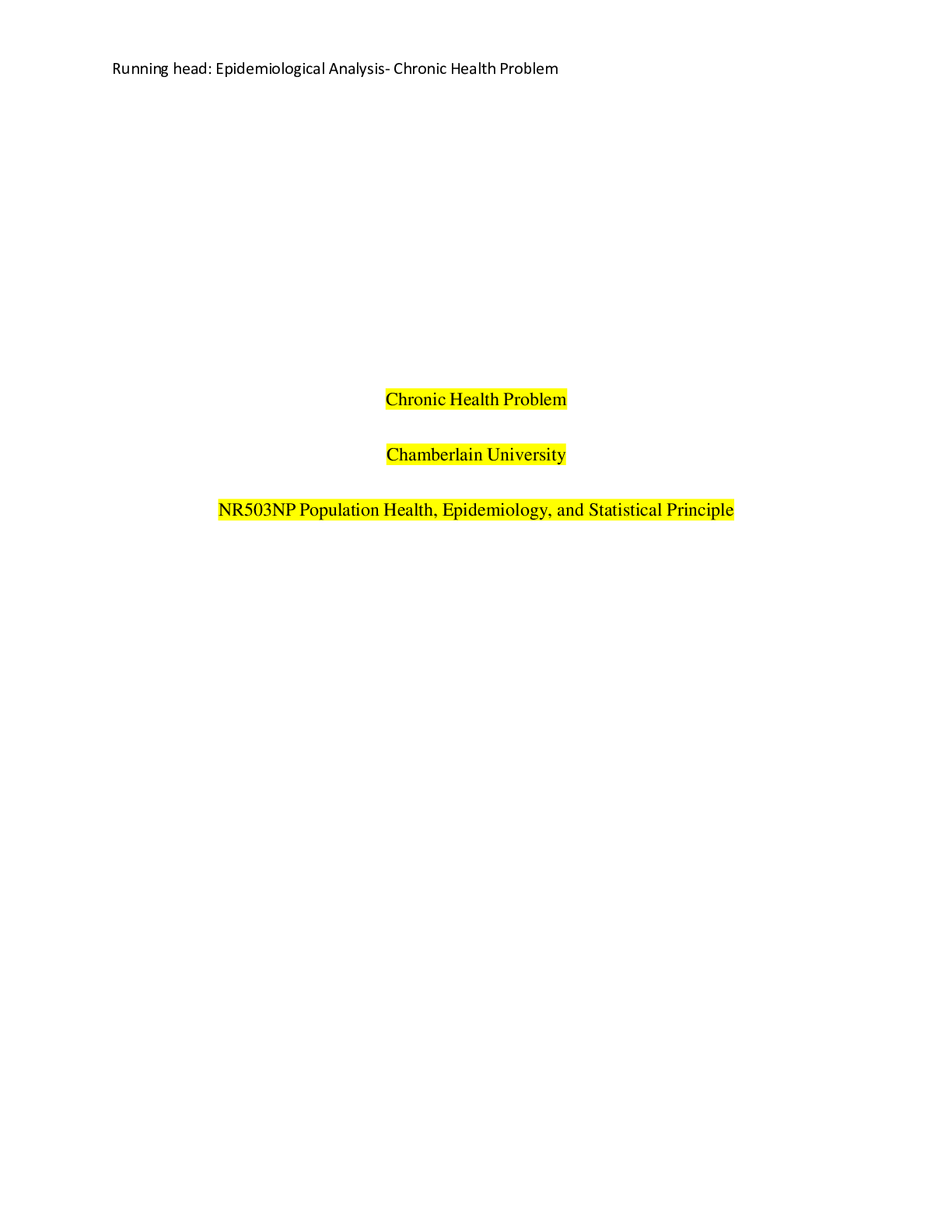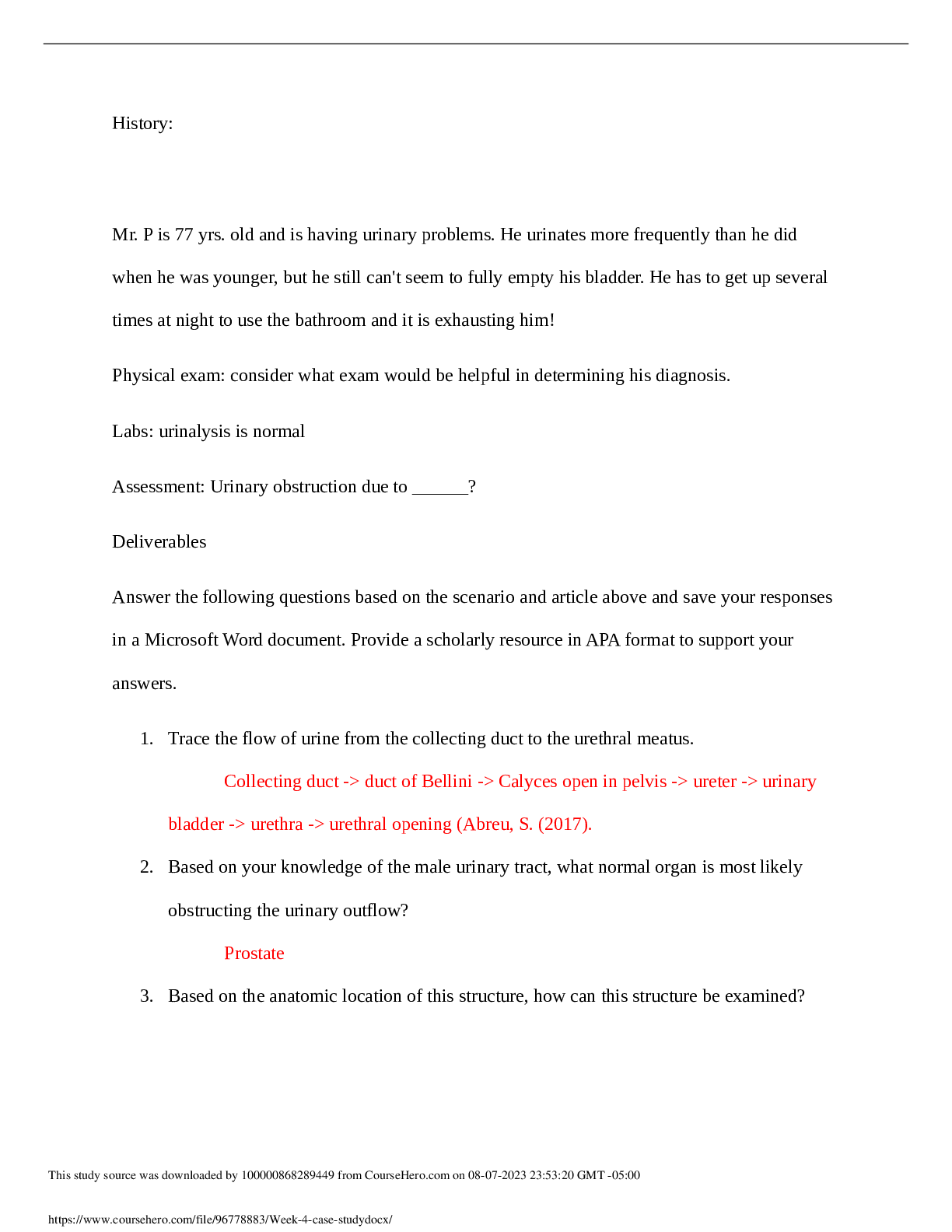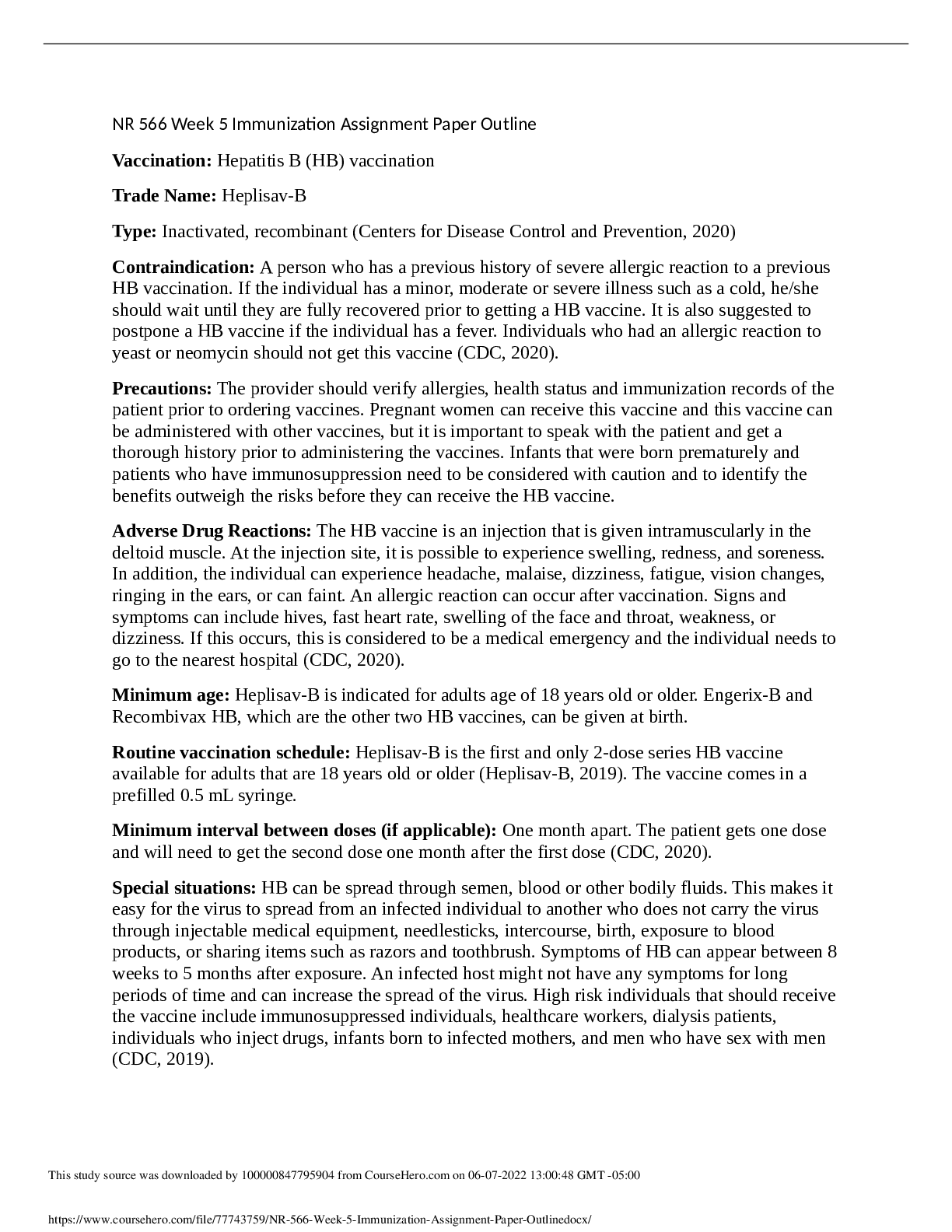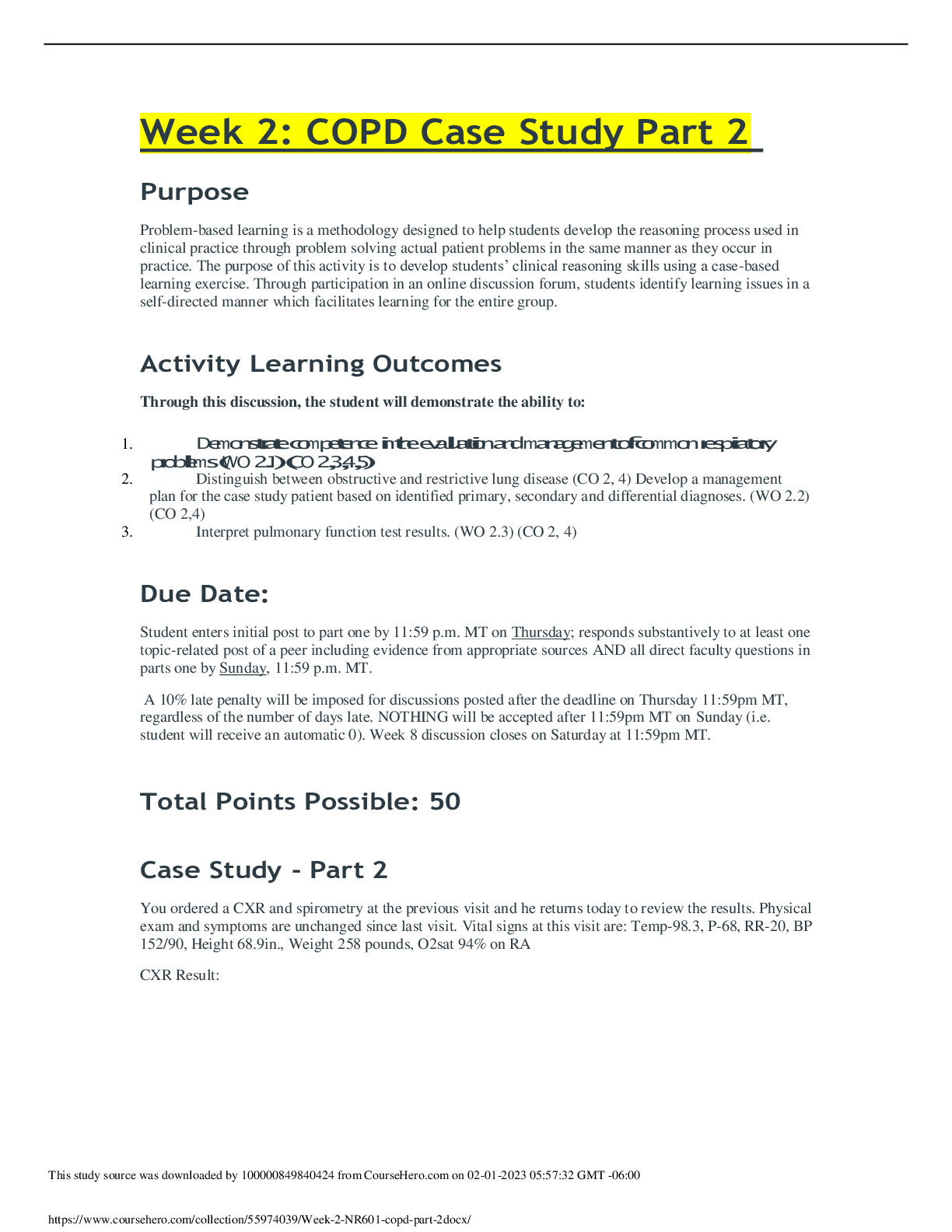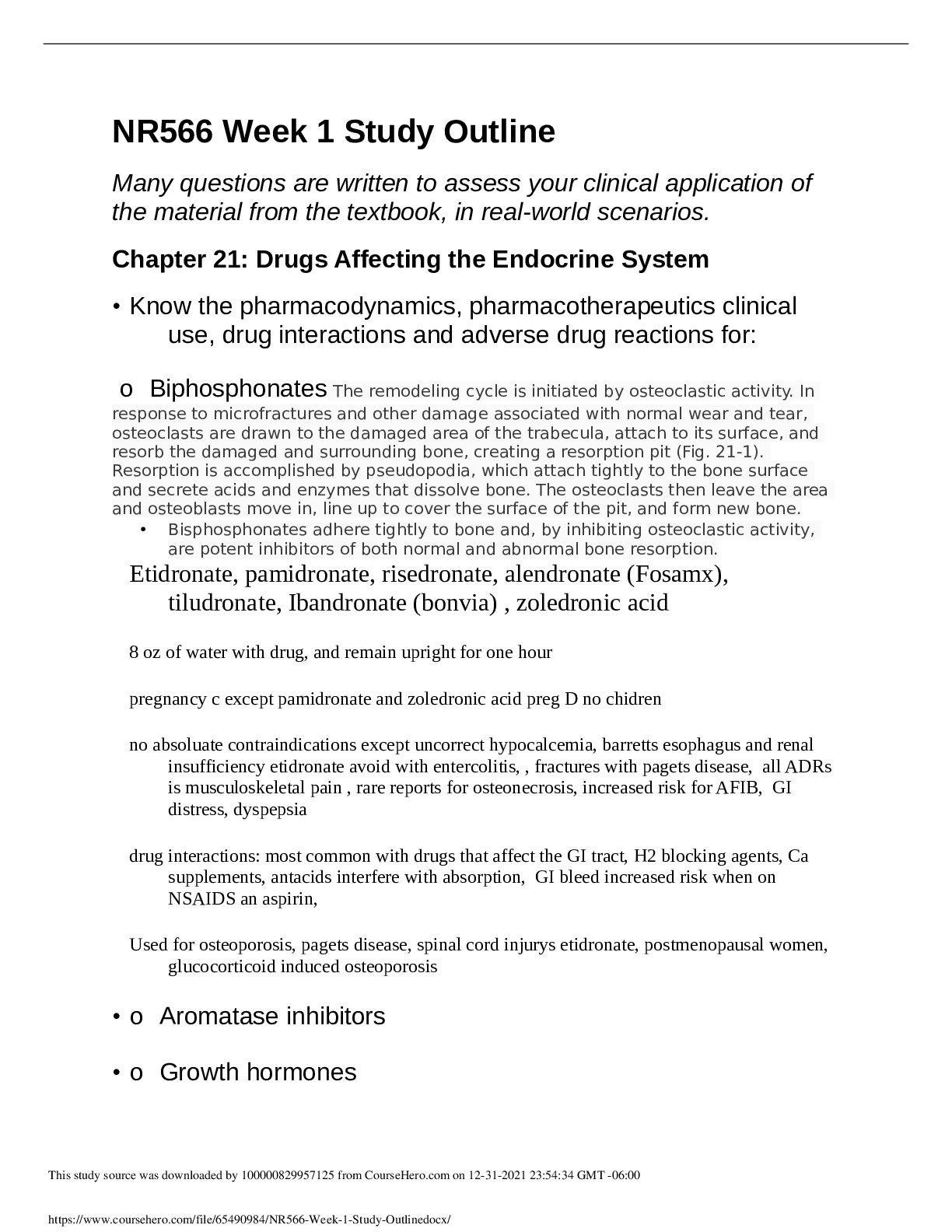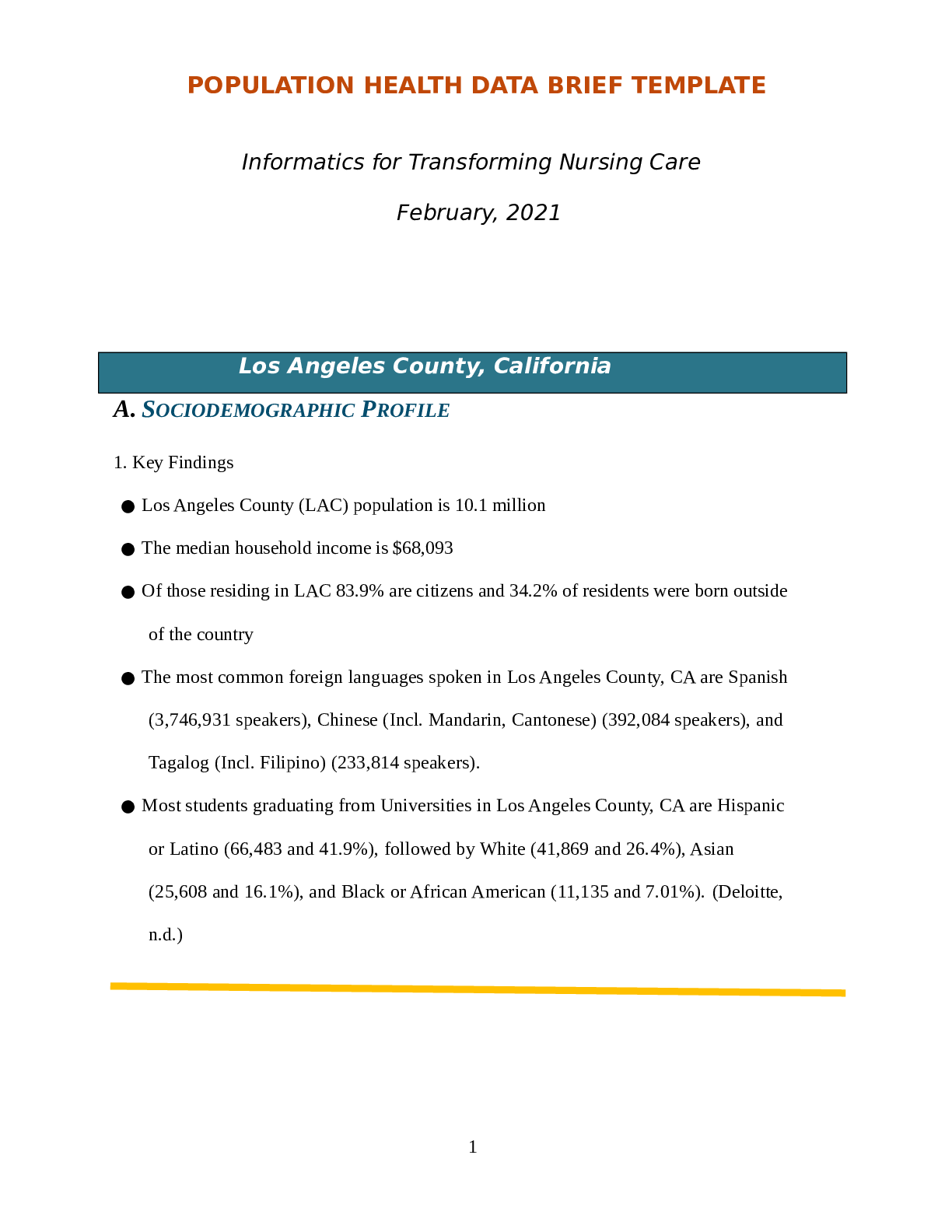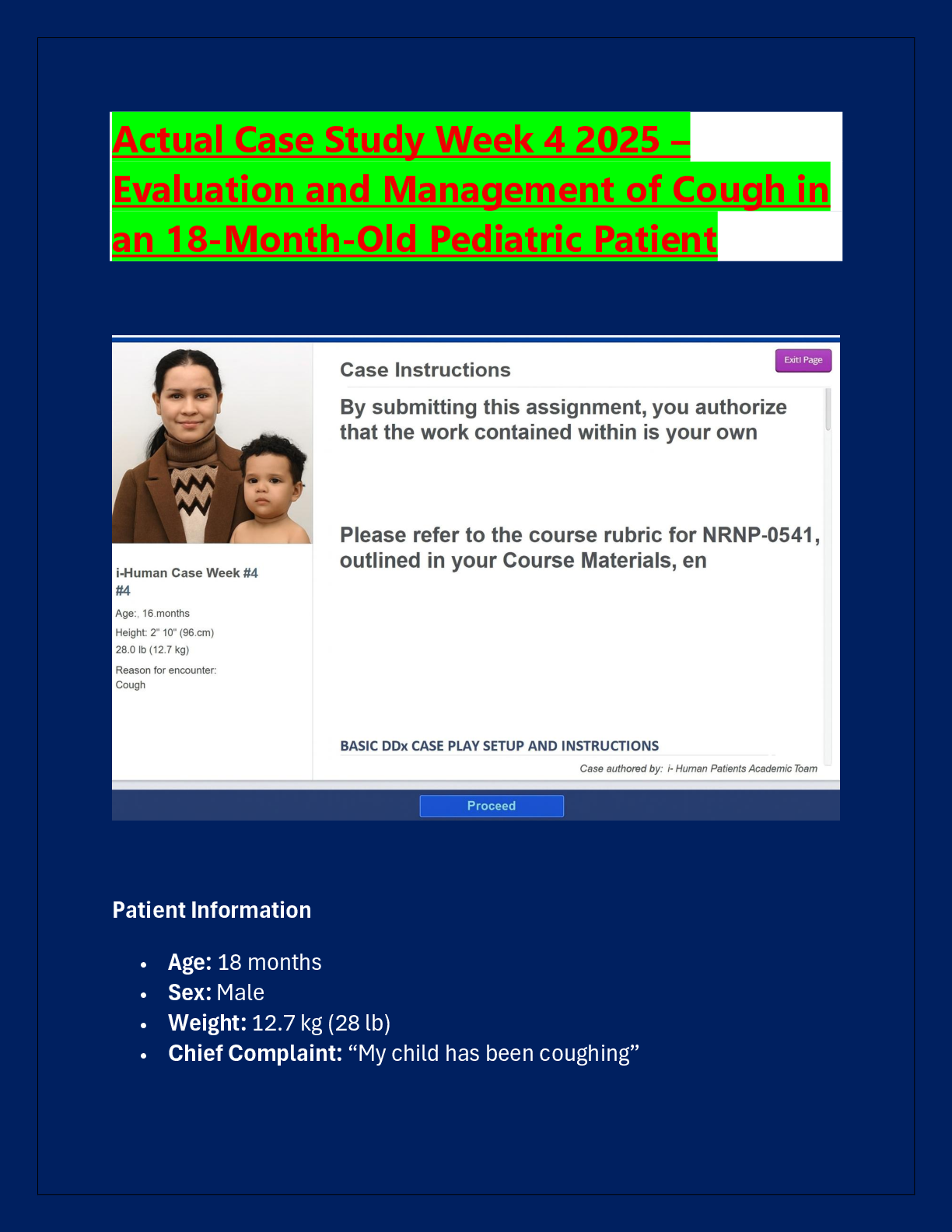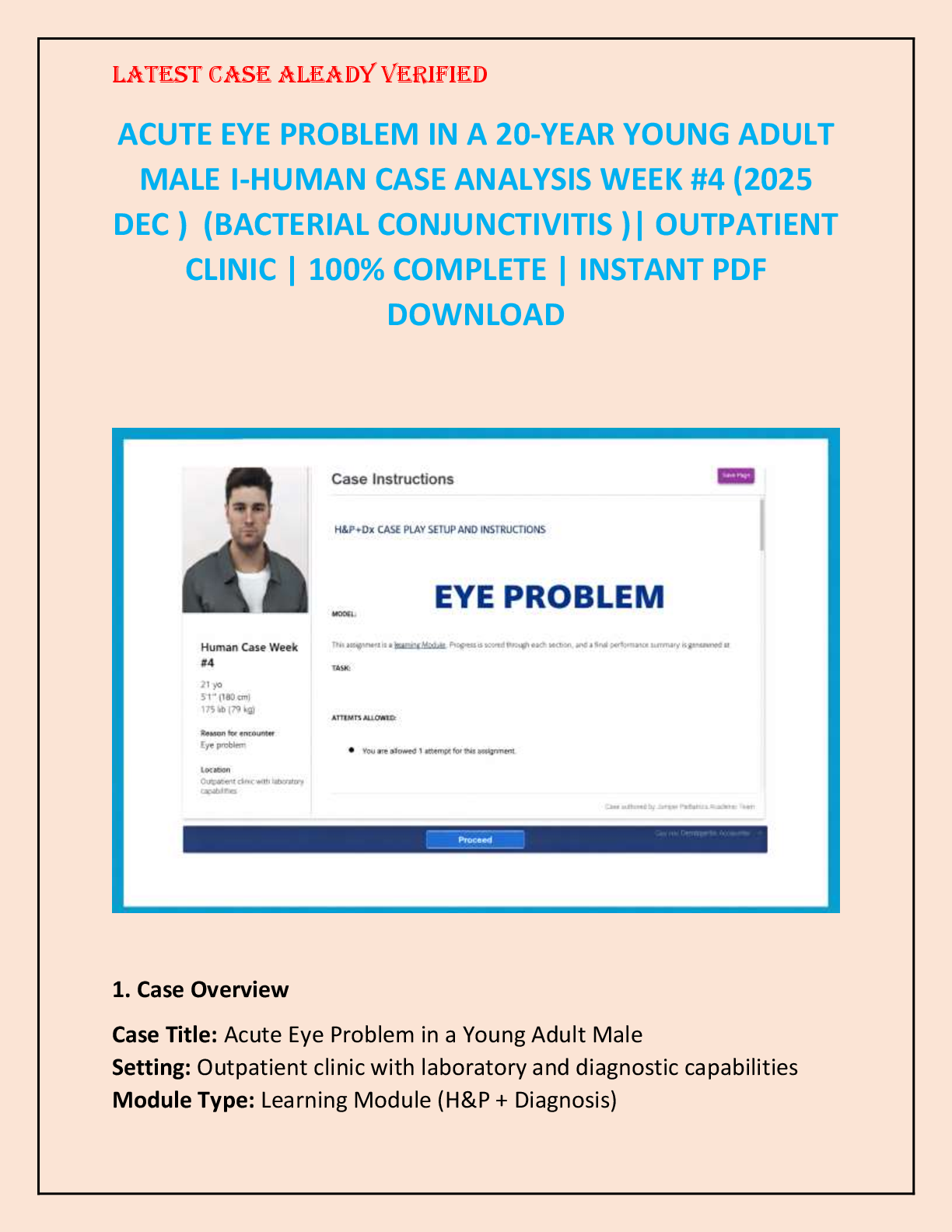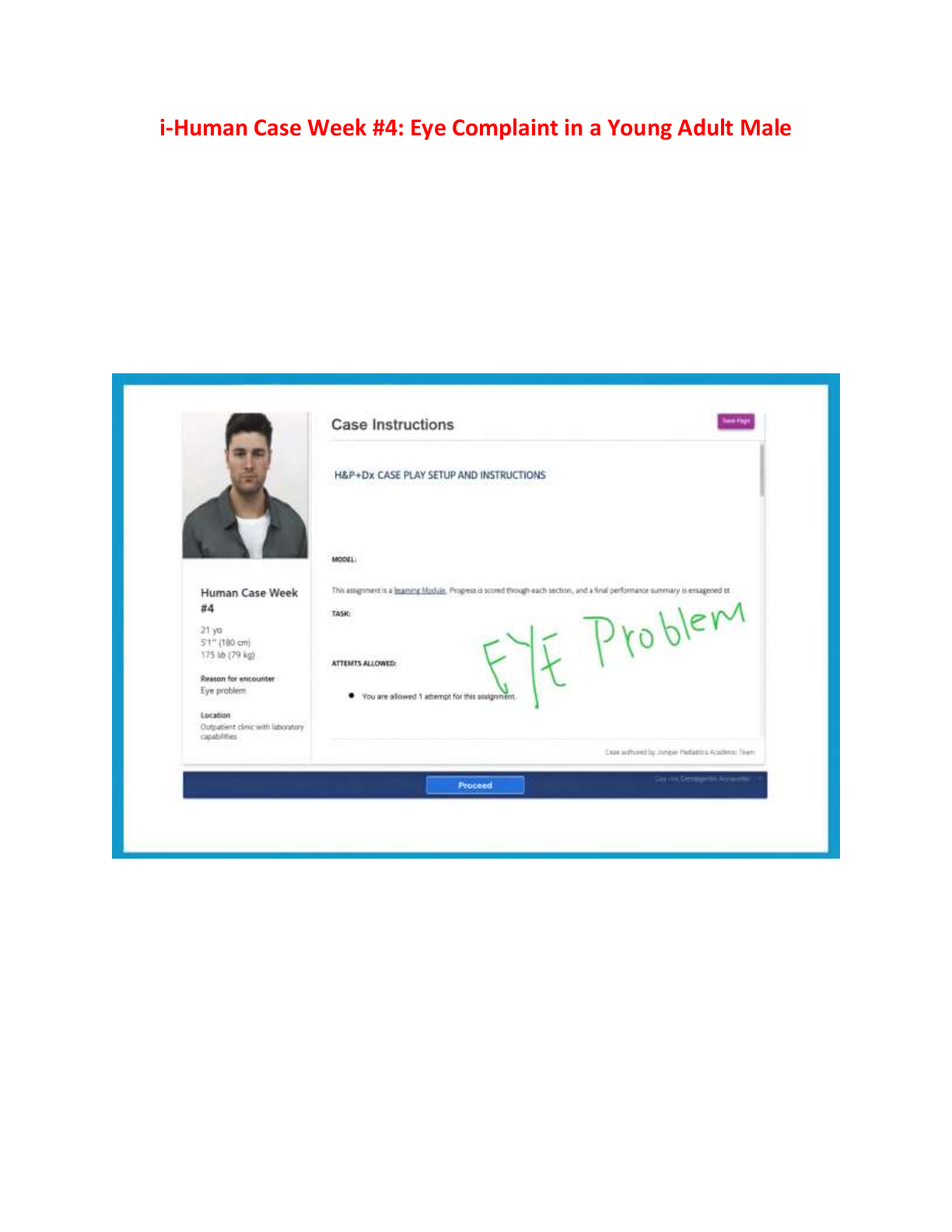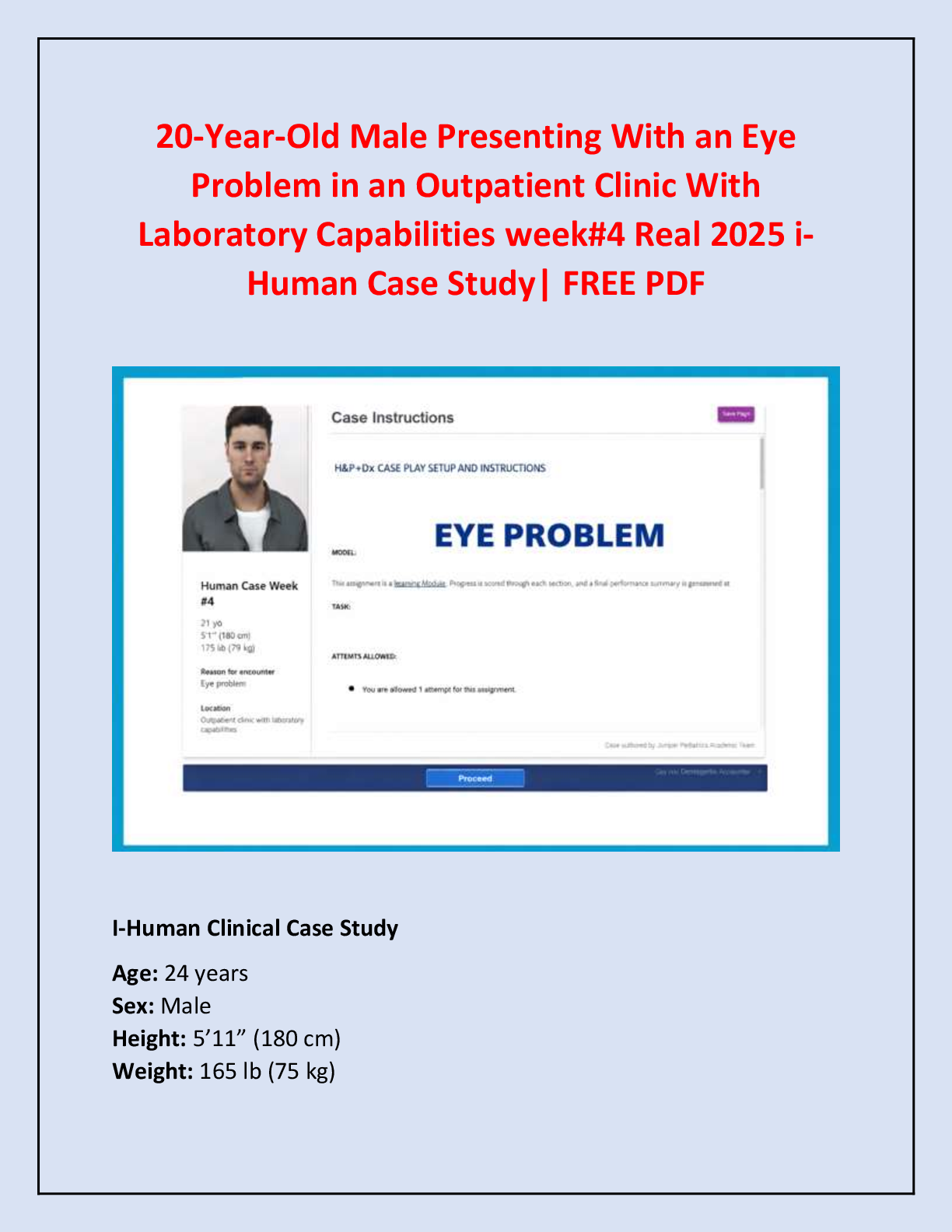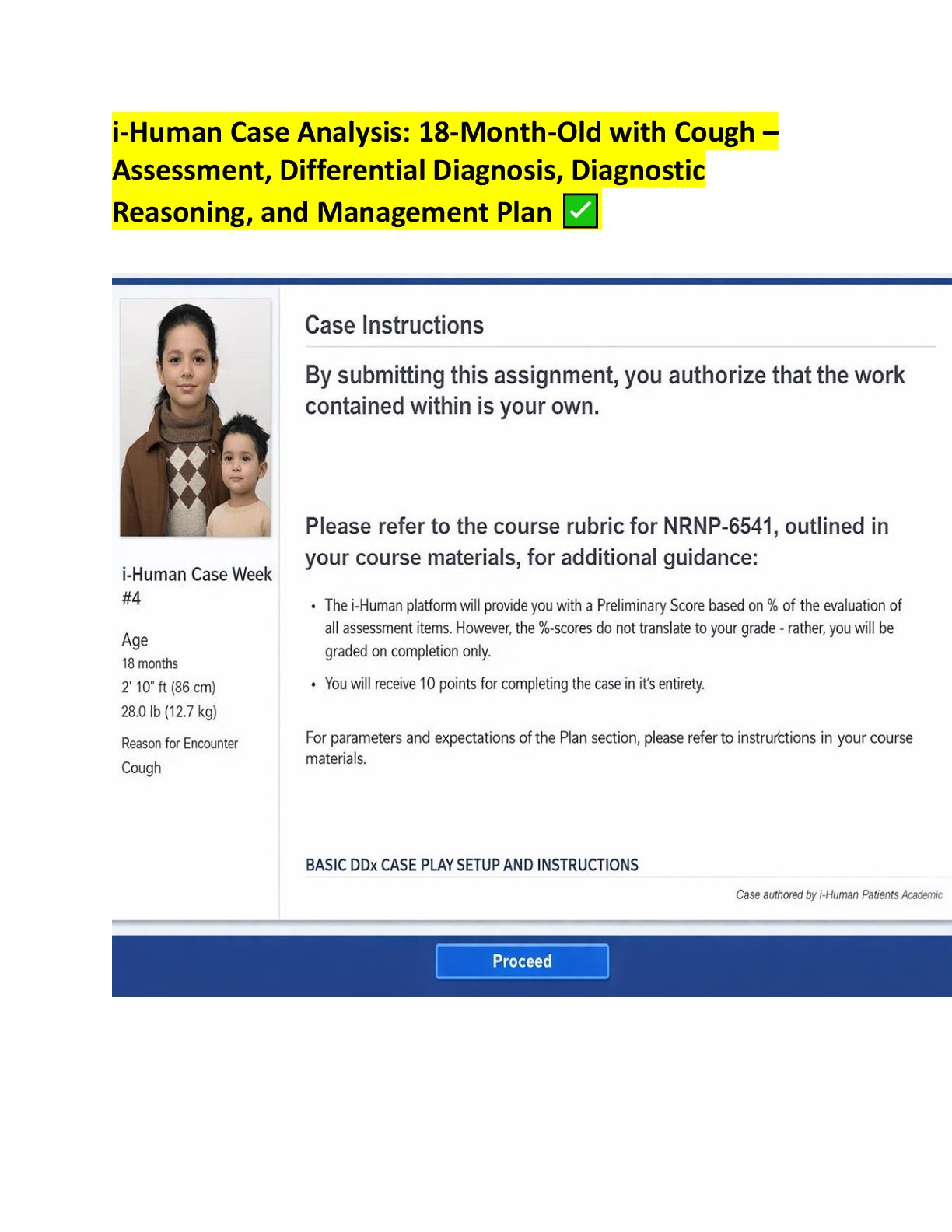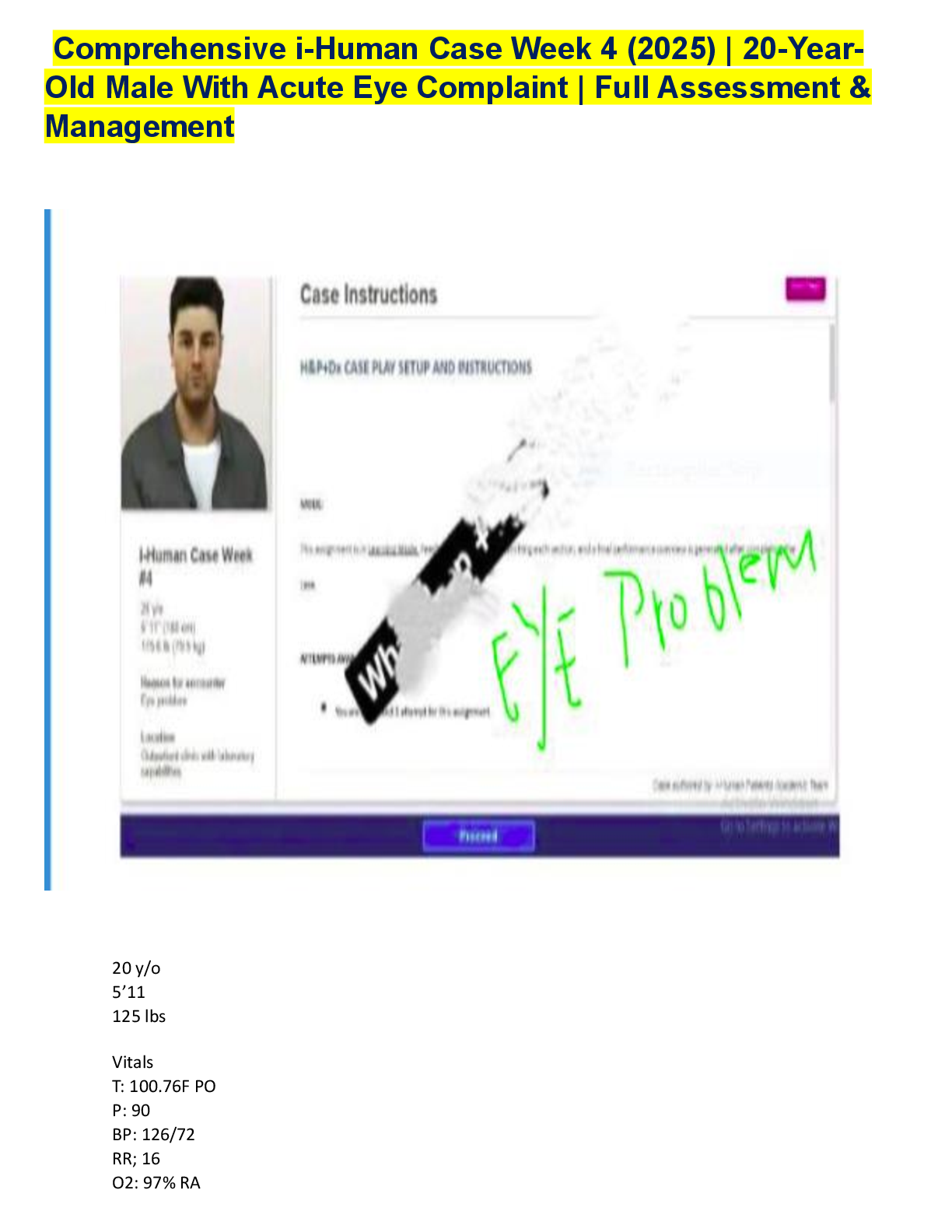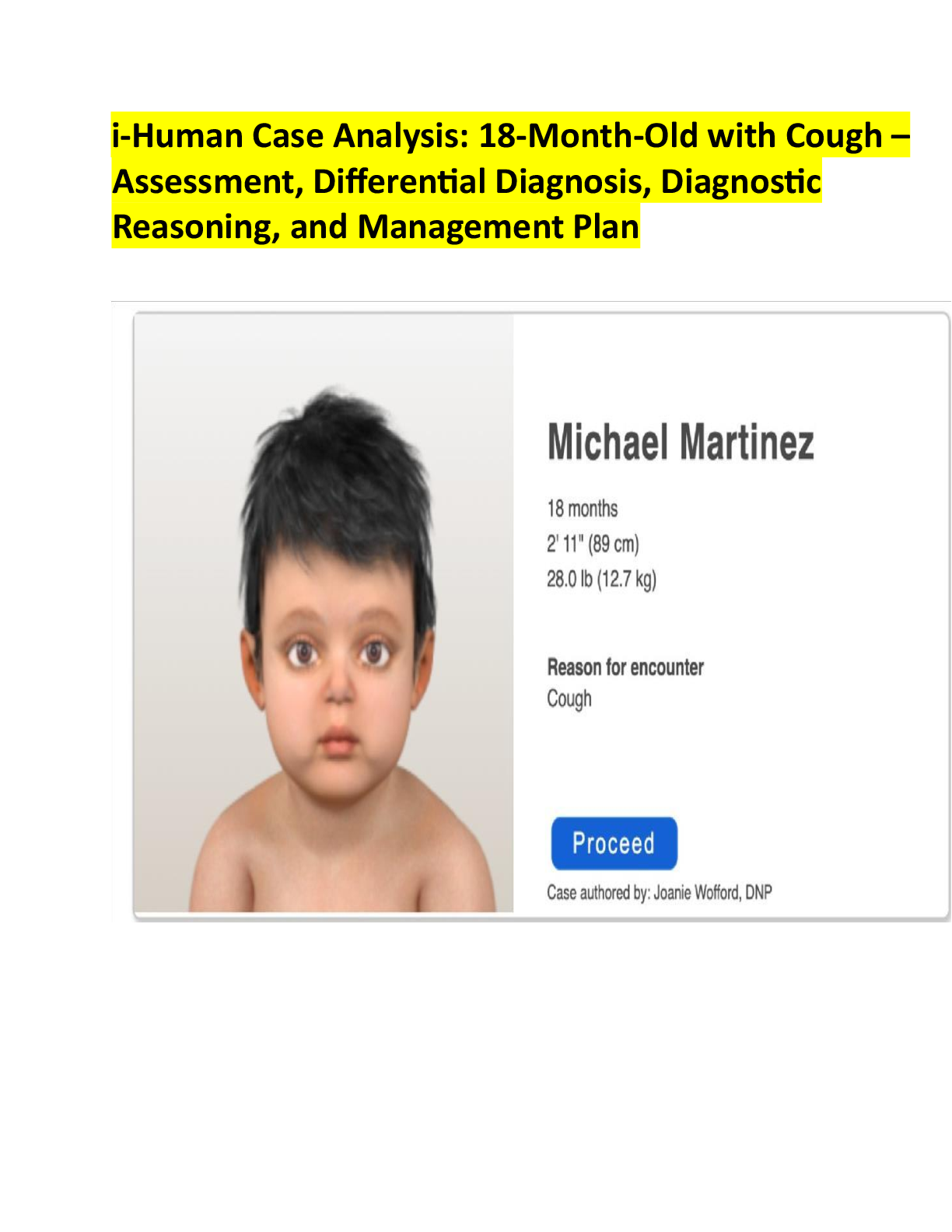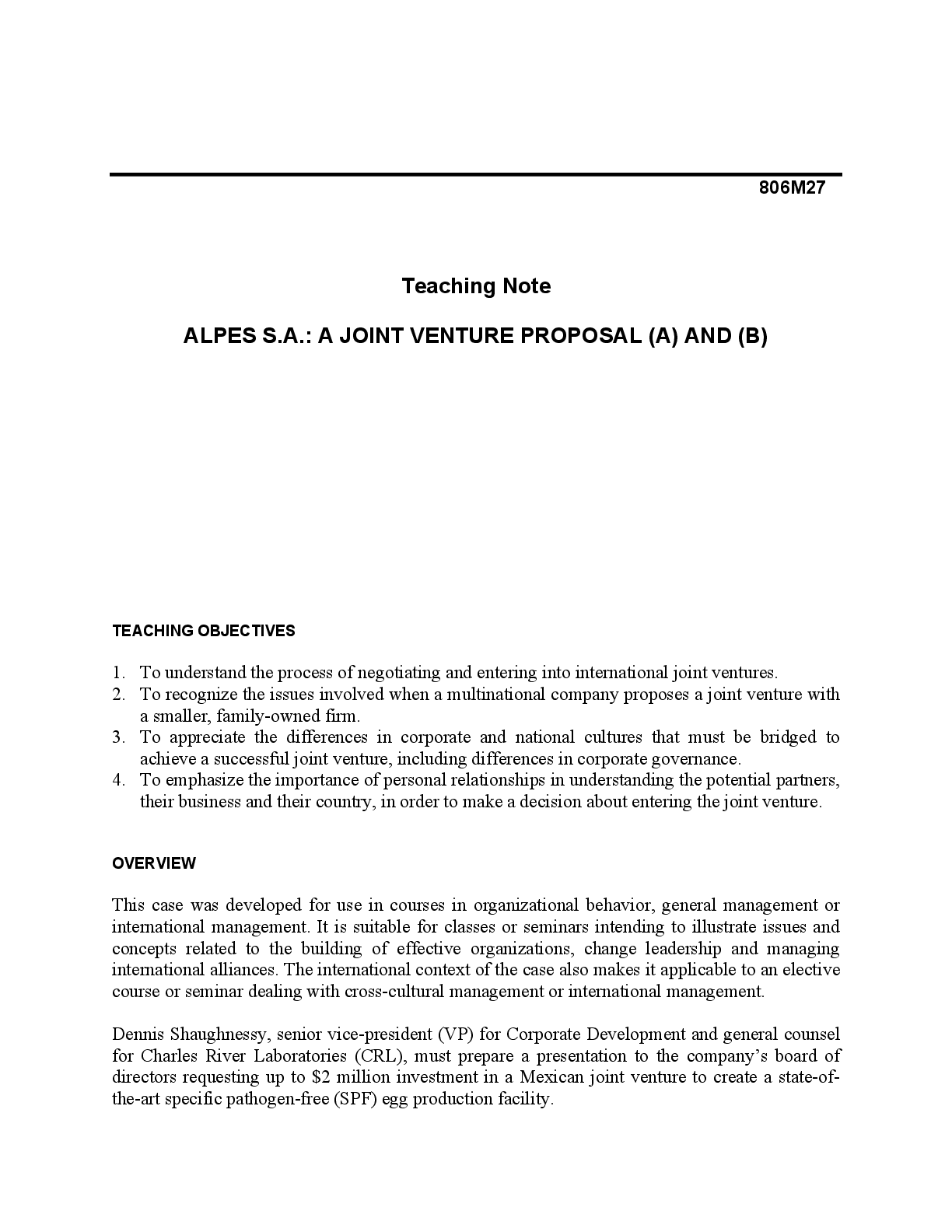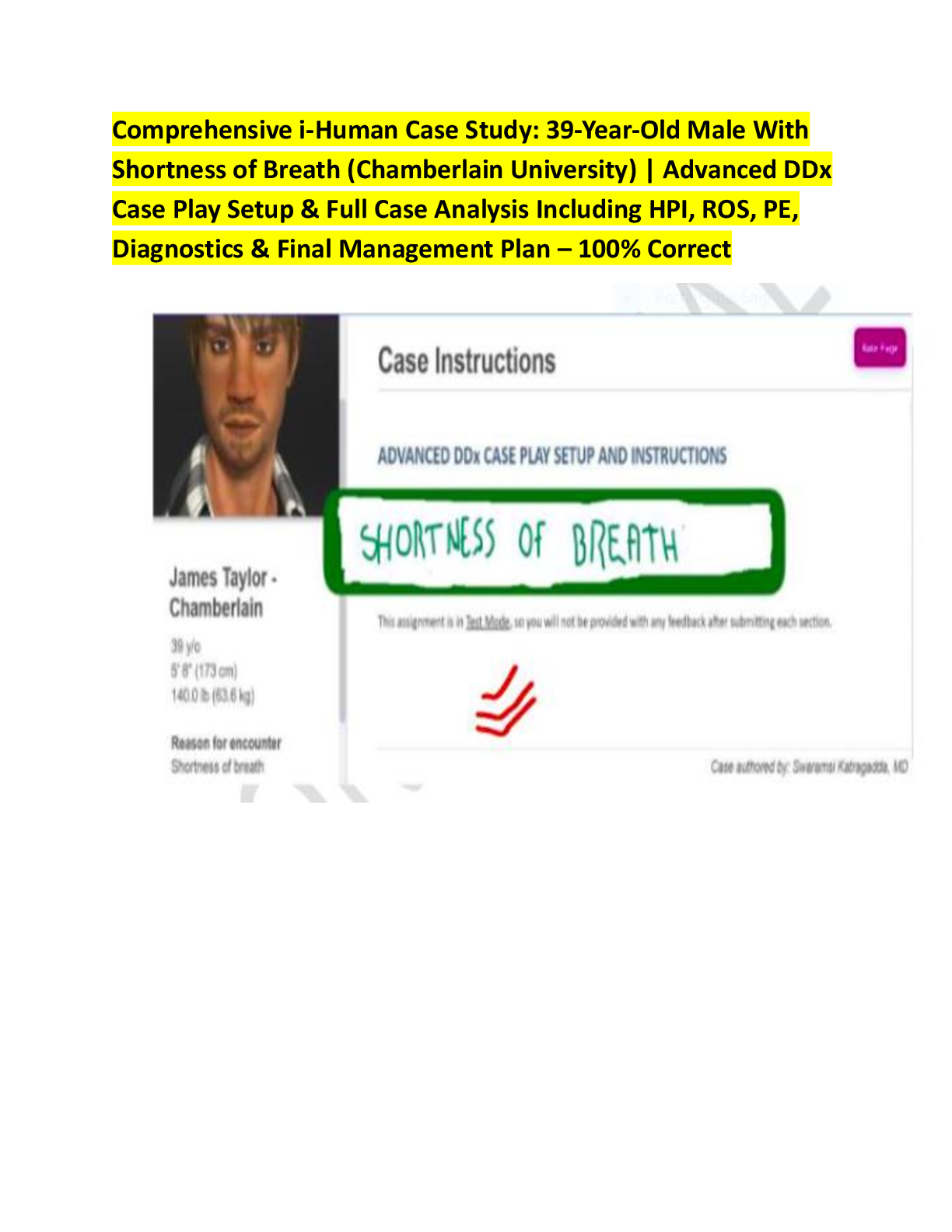Psychology > CASE STUDY > PSYC 110N Week 2 Assignment: How We Perceive the World Around Us (All)
PSYC 110N Week 2 Assignment: How We Perceive the World Around Us
Document Content and Description Below
How we perceive the world around us Chamberlain University PSYC110N: Psychology How sound travels through the Ear The ear has many major parts that help sound travel. Sounds travel in ... a wave like motion, arriving at the outer ear forming vibrations that are funneled into the auditory canal which leads to the eardrum. When sound waves hit the eardrum, it vibrates. The more intense that the sound is, the more that the eardrum will vibrate. These vibrations then make their way to a place known as the middle ear, which consists of three different bones: hammer, anvil and stirrup. These bones increase the strength of the vibrations that are coming from the eardrum. The inner ear is responsible for changing the sound vibrations into something that can easily be transmitted to the brain. Inside the inner ear you will find the cochlea and the basilar membrane, these structures divide the ear into an upper chamber and lower chamber. The basilar membrane is covered in hair cells, and when these hair cells are bent by the vibrations coming from the cochlea they send messages to the brain. What other senses were used and how they were used Without my hearing, I relied mainly on sight, smell, touch and even taste when necessary. Things are very different when you are unable to hear, you have to be a lot more perceptive to what is going on around you. In my 15-30 minute observation I started to cook dinner and that is where I used smell and sight. I would typically use my hearing to listen to what I was cooking on the stove to help determine when it was finished, but instead I had to watch my dinner cook until finished. Which then incorporated taste and smell. Taste was to make sure that what I cooked for dinner had the correct flavor and was cooked thoroughly. Smell was to make sure that dinner wasn’t burning while cooking at any given time. My sight was also used while watching a movie in the background of cooking dinner. Since I was unable to hear, I used the subtitles on the television to take the place of what I normally hear. Information that was picked up on and Ignored Using my hearing I feel that I am a lot more aware of my surroundings. Being without my hearing made me realize that many things can happen around me without my knowing it due to lack of sound. Some different things that I noticed were: my dogs barking and pacing, subtitles on the television, and even trying to communicate with my husband. Trying to read lips is definitely a challenge, even if it is only for a few minutes. Habituation and Sensory Adaptation Habituation is the decrease in the response to a stimulus that occurs after repeated presentations of the same stimulus. Sensory adaptation is an adjustment in sensory capacity after prolonged exposure to unchanging stimuli (Feldman, R 1947). In my observation time, I experienced some sensory adaptation. This was happening with me becoming accustomed to having to use my other senses more and for an extended period of time. After about ten minutes of my observation time, I adjusted to the need to see things from a visual point, especially like watching the television! Which just for the record is way more difficult than one might actually think. Our minds have to work twice HOW WE PERCEIVE THE WORLD AROUND US as hard to supplement for what we lack when our hearing is gone. How my perception might change My life would change drastically if one of my senses was permanently lost. Adjusting to a life with a lack of a specific sense I think would be fairly difficult. If one of my senses was gone, my other senses would be amplified meaning they would be stronger than what they normally would be. So, the lack of a sensory input would cause the brain to take over the roles that are unoccupied. Our five senses are the building blocks of our everyday lives. They bring us pleasure and pain and they allow us to safely navigate the world around us. References Feldman, R. S., (1947) Understanding Psychology Fourteenth Edition [Show More]
Last updated: 3 years ago
Preview 1 out of 5 pages

Buy this document to get the full access instantly
Instant Download Access after purchase
Buy NowInstant download
We Accept:

Also available in bundle (1)
Click Below to Access Bundle(s)

PSYC 110N Entire Course Week 1 – 8 BUNDLE | 100% CORRECT SOLUTION
PSYC 110N Week 1 Assignment: Psychological Perspectives Comparison PSYC-110N Week 1 Discussion: Psychological Perspectives – Behavioral and Neuroscience Dialogue PSYC 110N Week 1 Discussion: Psychol...
By Prof. Goodluck 3 years ago
$14
10
Reviews( 0 )
$12.50
Can't find what you want? Try our AI powered Search
Document information
Connected school, study & course
About the document
Uploaded On
May 23, 2022
Number of pages
5
Written in
All
Additional information
This document has been written for:
Uploaded
May 23, 2022
Downloads
0
Views
191



